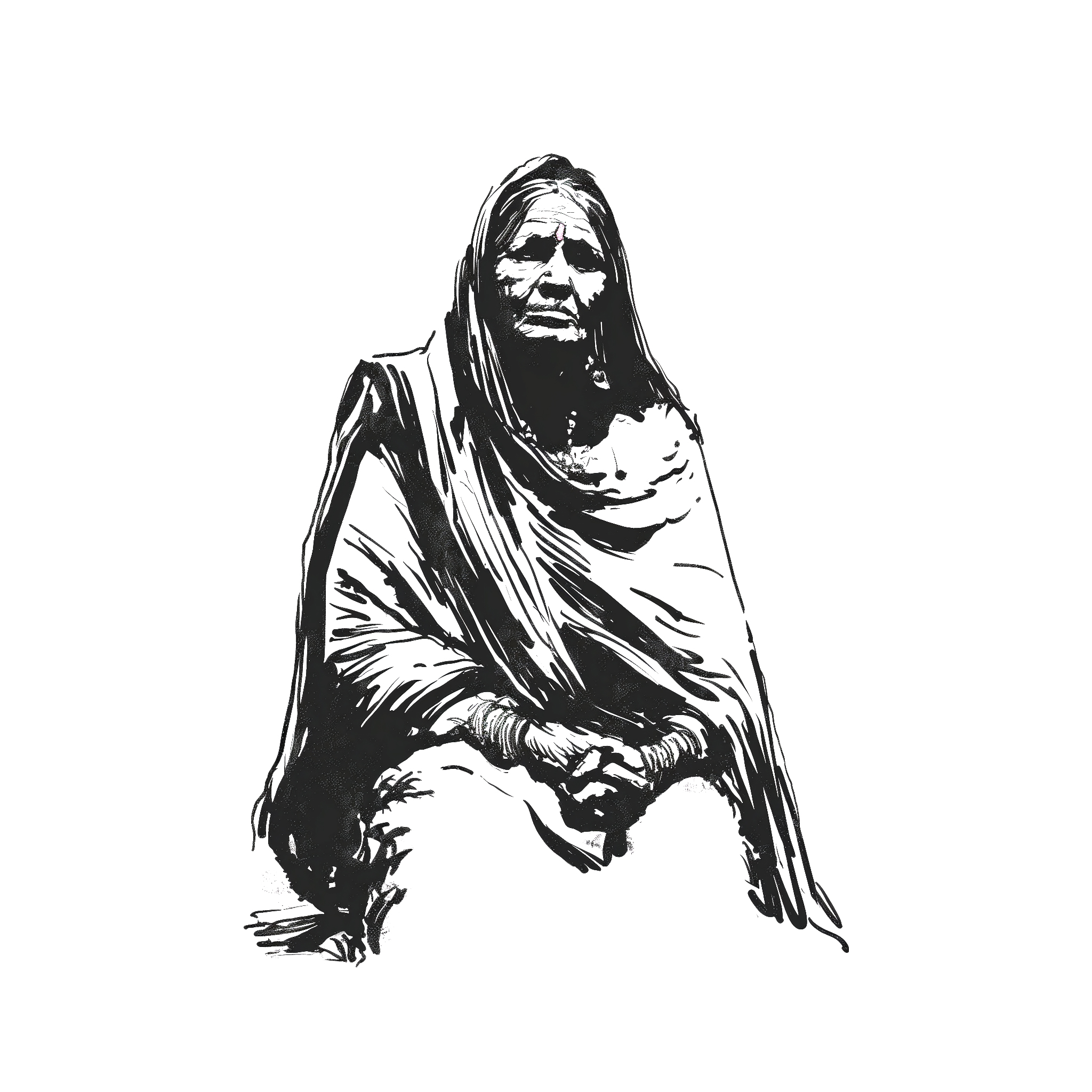Menu



Menu




In the heart of Maharashtra, India, lies a small village, etched with the stark lines of poverty and hardship. It was here that Sindhutai Sapkal was born, into a life where struggles were a daily companion. Her childhood was not filled with the carefree joy that many experience; instead, it was a relentless battle for survival. With school a distant dream, young Sindhutai was tasked with herding buffaloes. Her days were a delicate balance of tending to the animals and stealing precious moments to sneak into school. She would lead the buffaloes to a pond, where they could drink and graze, and then dash to the classroom, only to return in time to avoid punishment. Despite the beatings she endured from both farmers and teachers, these stolen hours of learning were the most treasured of her life.
At merely ten years old, Sindhutai’s childhood was abruptly taken from her as she was married off to a man thirty years her senior. Her early marriage thrust her into a world of adult responsibilities and soon, she became a mother. By the age of twenty, she had three sons and was pregnant with her fourth child. Her life, already laden with difficulties, took a horrific turn when a local mafia member sowed seeds of mistrust in her husband’s mind. The man, driven by jealousy and malice, falsely accused Sindhutai of infidelity. Faced with threats and humiliation, her husband succumbed to the mafia’s pressure and attacked her viciously, kicking her repeatedly in an attempt to end her life. As she lay unconscious, he dragged her to a cowshed, hoping people would believe she had been trampled by the animals.
In that dimly lit shed, amidst the smell of hay and the looming shadows of cows, a miracle unfolded. One cow, driven by an inexplicable compassion, stood guard over her, keeping the other cows at bay. Hour after hour, this guardian angel in bovine form protected her from further harm. Under this unlikely shelter, Sindhutai gave birth to a daughter, cutting the umbilical cord with a stone. In that moment of profound despair and pain, she found a glimmer of hope. Embracing the cow, she vowed to dedicate her life to protecting others as fiercely as this animal had protected her.
Homeless, shunned, and with an infant in her arms, Sindhutai found herself at a crossroads. She wandered aimlessly until she found herself sitting beneath a tree, its branch brutally hacked yet still clinging on, providing shade. This poignant scene mirrored her own life—broken but not defeated. It was a revelation. If a severed branch could offer comfort, so could she, despite her shattered state. With this newfound purpose, she set out to become a mother to the motherless.
In the bustling streets and silent corners of India, abandoned children were a common sight. Sindhutai took them in, offering them the love and care she had been deprived of. She sang and begged in the streets to feed her growing family, transforming her sorrow into a song of hope and survival. Her selfless love and dedication drew attention, and soon, people helped her build an orphanage. Her home became a sanctuary for over 1,500 children, each one a testament to her unwavering spirit.
The true depth of Sindhutai’s compassion was revealed when, years later, an old, destitute man came seeking her help. This man, frail and broken, was her estranged husband. The same man who had tried to kill her now stood before her, homeless and desperate. In an extraordinary act of forgiveness, she took him in, not as a husband, but as a mother. She instructed her children to show him the love and care he needed, demonstrating that true compassion knows no bounds. To visitors, she would introduce him with a touch of humor, calling him her “eldest son,” underscoring her boundless capacity for love and forgiveness.
Sindhutai’s life was not just a tale of personal redemption but a beacon of hope for many. Her story, filled with unbearable pain and profound love, touched hearts far and wide. She received numerous national and international awards, but her greatest reward was the transformation of lives she nurtured. As shared by Radhanath Swami, her journey from a village girl to the revered “Mother of Orphans” is a powerful reminder that even in the darkest times, the light of compassion can illuminate the path to a better world. Sindhutai taught us that in the face of unimaginable suffering, one can find the strength to help others, turning personal tragedy into a legacy of love and humanity.
˗ˏˋ ✶ ˎˊ˗
Silence was not absence.
It was preparation, why I disappeared to create this. Something I carried for so long finally comes into the light. Soon, you will understand why.
No price. No gate. No exchange.
A gift, freely given to all people of the world!
༄.°
